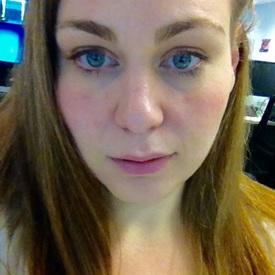No, you are not in starvation mode

honkytonks85
Posts: 669 Member
I'm a little tired of seeing the term 'starvation mode' thrown about every time somebodies weight loss stalls. The idea that you need to eat more to lose more weight just doesn't hold up when you consider biochemistry and physiology. In order to lose weight, you need to eat fewer calories than you consume.
Now - this idea of starvation mode has come about from the famous Minnesota study where normal weighted men lived on a compound with a strictly controlled regime of diet and exercise. This went on for several months, where they consistently ate about 50% of their daily calorie need. These men were already of normal weight, and ended up with a body fat % lower than what is considered normal (less than 5%) and yes, their metabolism DID slow down. BUT, even though their metabolism slowed they still continued to lose weight.
So, if a person says they aren't losing weight on 1200 calories a day - unless a person has a very low body fat % and they have eaten less than 1000 calories for several months every day - they are likely not in 'starvation mode' and holding onto fat.
Now I am not saying you should eat less than 1200 calories a day. It's important to eat because your body needs those nutrients to function well. However, if someone says they aren't losing weight it is more than likely that
a) they are losing fat but they are retaining water and not seeing a loss on the scales (so they should probably be taking measurements instead)
b) they are underestimating their calories in and overestimating their calories out
Here are some good articles on this topic;
http://www.weightwatchers.com/util/art/index_art.aspx?tabnum=1&art_id=35501
http://www.healthscience.org/index.php?option=com_content&view=article&id=512:are-you-in-the-starvation-mode-or-starving-for-truth&catid=102:jeff-novicks-blog&Itemid=267
http://caloriecount.about.com/forums/weight-loss/truth-starvation-mode
Now - this idea of starvation mode has come about from the famous Minnesota study where normal weighted men lived on a compound with a strictly controlled regime of diet and exercise. This went on for several months, where they consistently ate about 50% of their daily calorie need. These men were already of normal weight, and ended up with a body fat % lower than what is considered normal (less than 5%) and yes, their metabolism DID slow down. BUT, even though their metabolism slowed they still continued to lose weight.
So, if a person says they aren't losing weight on 1200 calories a day - unless a person has a very low body fat % and they have eaten less than 1000 calories for several months every day - they are likely not in 'starvation mode' and holding onto fat.
Now I am not saying you should eat less than 1200 calories a day. It's important to eat because your body needs those nutrients to function well. However, if someone says they aren't losing weight it is more than likely that
a) they are losing fat but they are retaining water and not seeing a loss on the scales (so they should probably be taking measurements instead)
b) they are underestimating their calories in and overestimating their calories out
Here are some good articles on this topic;
http://www.weightwatchers.com/util/art/index_art.aspx?tabnum=1&art_id=35501
http://www.healthscience.org/index.php?option=com_content&view=article&id=512:are-you-in-the-starvation-mode-or-starving-for-truth&catid=102:jeff-novicks-blog&Itemid=267
http://caloriecount.about.com/forums/weight-loss/truth-starvation-mode
0
Replies
-
Thank you for this. I needed a perspective readjustment as I think I've been swayed a bit too hard by the TDEE crowd into thinking that starvation mode is just around the corner and have been extremely scared to lower my caloric intake as a result. I think I'm different than most in that I am sitting on the other extreme than those unwilling to budge from 1200 cals.0
-
Thank you for sharing, I was just wondering about this.
The most suspicious to me is how come it's magically at 1200 kcal for everybody, when all the other weight and weight loss parameters vary so much depending on gender, age, current weight ant many others.0 -
I am so confused. MFP says I should eat 1200 calories per day. My weight loss has been slow if 1 lb per week and this week I have put on 0.5 pounds. I generally don't eat the calories I burn through exercise and people have commented on a post of mine to say I'm eating too few calories. I've read the articles about the starvation mode myth but don't know if I'm still under eating or not. There's just so many diets and advice out there that I'm just confused as to why I'm not losing as much weight as I want and put on weight this week. Any help would be appreciated.0
-
I am so confused. MFP says I should eat 1200 calories per day. My weight loss has been slow if 1 lb per week and this week I have put on 0.5 pounds. I generally don't eat the calories I burn through exercise and people have commented on a post of mine to say I'm eating too few calories. I've read the articles about the starvation mode myth but don't know if I'm still under eating or not. There's just so many diets and advice out there that I'm just confused as to why I'm not losing as much weight as I want and put on weight this week. Any help would be appreciated.
The Doctor who wrote the book 'The 17 day diet' says that your body adapt to your new diet after 22 days and therefore the weight loss will slow down or differ. So far that has been the case with me and I found that it works to change up my diet plan every 17 days. Though I take breaks in between the periods of 17 days since I also wanna live life and enjoy all kinds of food 0
0 -
I absolutely agree. The "eat more" seems like some jolly joker around here on MFP - whatever happens with your weight loss: EAT MORE! These kind of "must be true for everyone" advices are always suspicious, the body is not a clockwork and does not work the same way in every case.
At the same time, most people complaining about plateus are 1 to 4 weeks into their diet and many completely freak out. It is really hard to explain that proper weight loss is not an 8 week project where your milestones 2 lb/week must be kept at all costs otherwise you FAILED. That is a load of tosh and these people keep giving up just because they gained 2 pounds, sad, really.0 -
Eta...link didn't work. Brad Pilon and John Barban on Starvation Mode/Minnesota study.0
-
This content has been removed.
-
This subject is annoying.
But I want to say, people have to listen to their bodies more. I noticed when I went down to 1000 calories and was working a lot. My work outs were so hard. I could barely make it through an hour. I felt weak. That's when I realized that 1000 calories was too low. If I can't enjoy my workout then it's a sign my body needs fuel.
So I bumped it up to 1200 and the workouts are doable. But I still wasn't back in my "LOVE IT" mode. So now I'm in between 1200-1400 and I don't believe in eating my exercise calories back. However, the "LOVE IT" mode is back better than it was on the lower calories.
My point is people should listen to their body and eat exercise calories back or NOT eat exercise calories or decrease or increase calories based on how they feel. Many people forget to listen to what their own body is telling them.0
This discussion has been closed.
Categories
- All Categories
- 1.4M Health, Wellness and Goals
- 395.6K Introduce Yourself
- 44.1K Getting Started
- 260.7K Health and Weight Loss
- 176.2K Food and Nutrition
- 47.5K Recipes
- 232.7K Fitness and Exercise
- 446 Sleep, Mindfulness and Overall Wellness
- 6.5K Goal: Maintaining Weight
- 8.6K Goal: Gaining Weight and Body Building
- 153.2K Motivation and Support
- 8.2K Challenges
- 1.3K Debate Club
- 96.4K Chit-Chat
- 2.5K Fun and Games
- 4.3K MyFitnessPal Information
- 16 News and Announcements
- 1.3K Feature Suggestions and Ideas
- 2.9K MyFitnessPal Tech Support Questions







